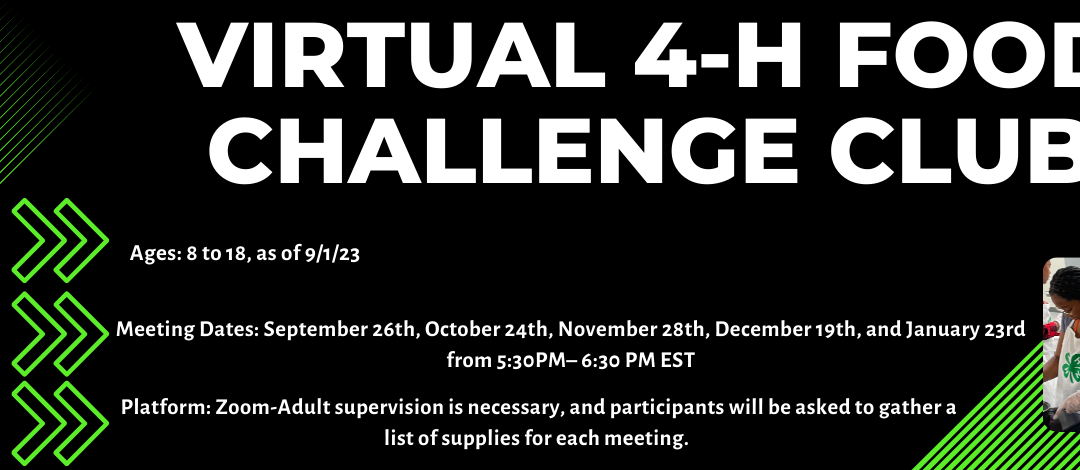
by pmdavis | Sep 14, 2023

First meeting is Sept 26th at 5:30 EST
I am so thrilled to let you know about a new endeavor with Florida 4-H. We are trying a virtual Food Challenge cooking club this year. This is so exciting for me because some of my fondest memories are cooking with my grandmother and Mom. I got to learn how to prepare foods and be creative as I was growing up pulling on their apron strings. I also enjoyed teaching and sharing these skills with my own children. What makes this even better is now I get to share and learn with all of you who join our program.
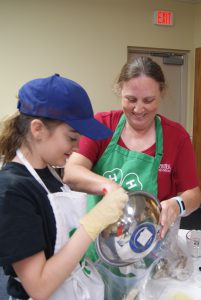
Paula and Madelyn Cooking together
By joining the new Virtual 4-H Food Challenge Club, you will embark on a fun, yet challenging, food-focused adventure right from the comfort of your kitchen! The club adventure will provide a fun atmosphere for you and your children to have a family time experience building lasting memories together. With the help from Florida 4-H Youth Development Faculty, you will get to unleash your culinary creativity and try delicious recipes while learning kitchen skills from safety, nutrition, and other food related life skills. Families will learn about competitive events related to foods like the Florida Food Challenge Competition. Families will also have the opportunity to make friends with fellow 4-H members across the state.
The virtual club is open to youth members ages 8-18 and will meet once a month starting in September. The club will meet via ZOOM on the following Tuesdays: September 26th, October 24th, November 28th, December 19th, and January 23rd from 5:30 – 6:30 PM ET. We request that adult supervision is present with the youth during the meeting and home practice sessions. The participants will be asked to gather a list of supplies for each monthly meeting as we focus on a new skill for each meeting.
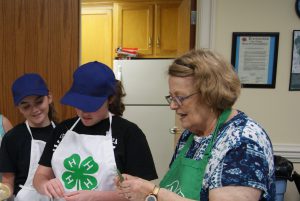
Paula’s family working with herbs to prepare a dish.
During this course we will help families enjoy preparing food, provide you with opportunities to problem solve together and work as a family team as practice preparation for the Florida 4-H Food Challenge! If you join us, your family will learn how to prepare and create yummy dishes with a predetermined set of ingredients. By the end of the program, your family should have some new recipes for your cooking toolbox, learned essential cooking skills and created wonderful memories from your time together. Do not miss this flavorful opportunity – sign up now via Florida 4-H Online and get cooking with 4-H! If you are not a member of a current 4-H Club there is a $20 membership fee associated with this club. If you are unable to join our virtual club, contact your local UF/IFAS Extension office to see if there is an active Food Challenge group that you can join. If not, work with your 4-H or FCS Agent(s) to identify two caring adults who could fill this role.
Enroll, Grab your ingredients, and get ready to join us via Zoom on September 26th@ 5:30 EST
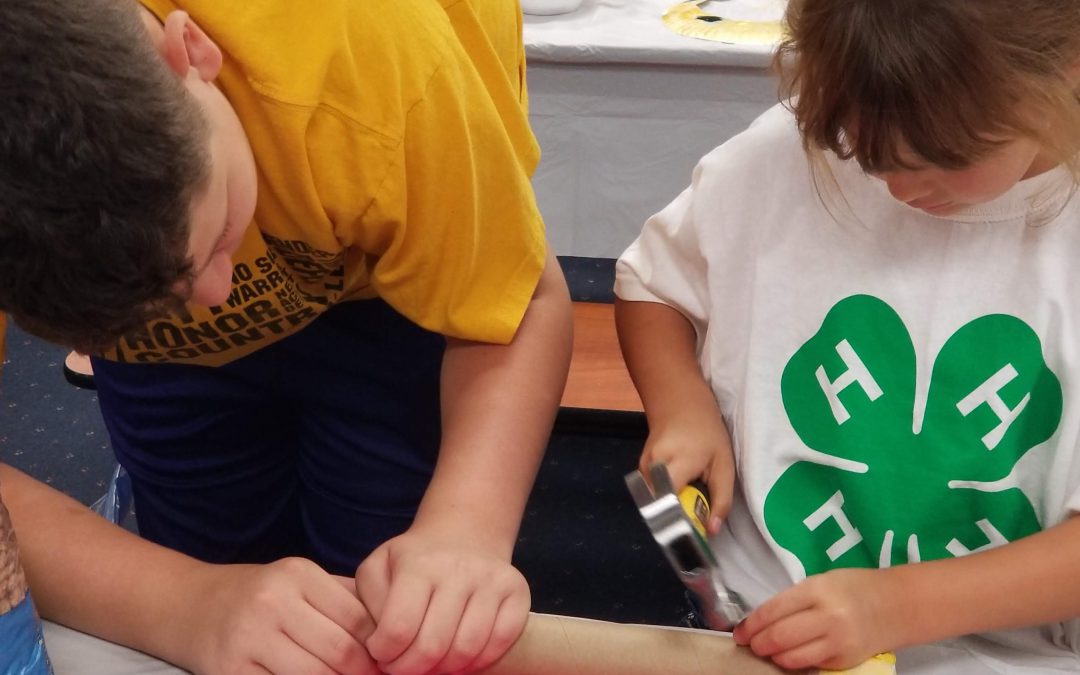
by Niki Crawson | May 19, 2023
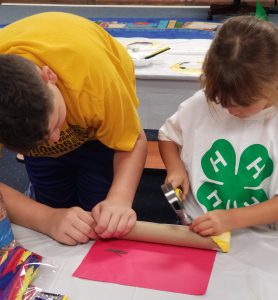
We know that younger youth look up to older youth and like to model their behaviors. We see it in siblings all the time, absorbing behaviors of their older brothers or sisters like sponges. Often times, younger youth find the attention and encouragement of older youth more relatable due to the closeness in age. Peer teaching fosters a more engaging and even symbiotic learning experience as this gives teens the opportunity to share and reinforce their own knowledge. In addition, by pairing the two age groups together in a learning environment, a sense of comradery can develop, creating a greater sense of belonging within the 4-H community. In this post, we will define peer teaching, share a few examples of how to utilize your teens as teachers and provide tips for getting peer teaching started in your clubs and other 4-H events and activities successfully.
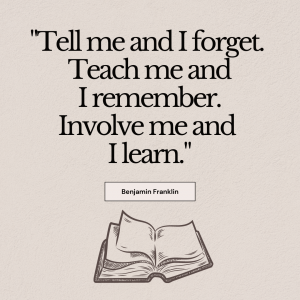
WHAT IS PEER TEACHING?
What do we mean by peer teaching exactly? It is the process of youth learning together and from each other through engaging, hands-on activities. In 4-H, we have the wonderful ability to utilize teens as volunteers and positive role models for our younger youth in our positive youth development programs. Empowering our teens as teachers for our younger members allows life skills to develop among our youth being instructed and also the instructors. The teen instructors are teaching specific topics to their peers at the same time they are strengthening their own leadership, communication, and social skills.
WHAT ARE THE BENEFITS OF PEER TEACHING?
As stated previously, one of the greatest outcomes is that the teacher and the student both gain knowledge and skills. It creates a mutually beneficial environment in which all youth can achieve personal growth and development if implemented and managed correctly. In addition, there are many other benefits of peer teaching such as:
- Peers being taught may form a quicker and better connection with teens due to communication, technology and other trends.
- An increase in peer confidence as they may feel more comfortable in asking questions, discussing topics with others closer to their age.
- Greater creativity as teens may have more innovative or modern ideas to bring to the activities.
- An increase in volunteers as teens have the ability to recruit more teens easier than typical adult volunteers.
- An increase in retention of youth as peers stay in the program and become the next generation of teen volunteers/teachers.
WHAT DOES PEER TEACHING LOOK LIKE IN 4-H?
Below are just a few programs for teens to practice the method of peer teaching in their 4-H county:
- New Members – When new youth join 4-H, it can be overwhelming at times to learn some of the 4-H activities, customs, and such. This would be a great opportunity for
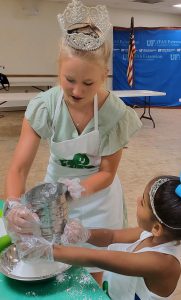 peer teaching. Have teens assigned to new members that join in order to teach them the 4-H pledge, motto, club expectations, member names, etc. This creates a greater sense of belonging and fosters a supportive environment within the club for new members to engage more quickly and successfully.
peer teaching. Have teens assigned to new members that join in order to teach them the 4-H pledge, motto, club expectations, member names, etc. This creates a greater sense of belonging and fosters a supportive environment within the club for new members to engage more quickly and successfully.
- Cloverbud Club Meetings – Utilizing your teen members in club meetings involving Cloverbuds (members ages 5-7) is a great way to incorporate peer teaching in your 4-H program. Younger members thrive off of creativity and enthusiasm which teens often portray easily. Teens can funnel this energy into teaching lessons to Cloverbuds that are engaging and interactive in a simplistic way.
- Summer Day Camps – 4-H programs often times need additional volunteers during the summer to assist with the volume of programming and youth participants. Therefore, summer is a great time to recruit teens to become peer teachers. Having teens as peer teachers helps with supervision and instruction while at the same time, allows them to stay involved in 4-H, continue to apply their life skills learned, and help the program teach life skills to other youth in the community.
TIPS TO GET PEER TEACHING STARTED IN YOUR 4-H COUNTY
What does it take to get peer teaching started in your 4-H county? Time and patience to start with. Teaching with teens is an ongoing task and will take a little effort on your part. Below are a few tips to get you started on having teens peer teach in your county:
- Identify programming that would benefit by peer teaching.
- Recruit quality teen teachers.
- Train and support teens as peer teachers.
- Assign teens appropriate roles in the peer teacher process.
- Model appropriate teaching methods in 4-H programs.
- Shadow teens in the role as peer teachers to provide support and guidance.
- Evaluate, provide feedback, and continue professional development for continued success.
Remember, peer teaching is a great way to utilize teen members in your 4-H programs. Younger youth need as many positive role models as possible in their lives. By having teen teachers take the lead in instruction in your 4-H programs, you are fostering an environment of learning, inclusivity, empowerment, and leadership.
To learn more about 4-H opportunities where teens can take the lead as teachers for their peers, please contact your local UF IFAS County Extension Office, or visit http://florida4h.org.
ADDITIONAL SOURCES:
Burse, G., Crocker, E. T., Jordan, J., McKinney, M., & Murphy, L. (2021). Teens as Teachers 4-H Project: Curriculum and Resources. UF/IFAS Extension, University of Florida. Retrieved May 1, 2023, from https://edis.ifas.ufl.edu/publication/4H432
Eckhoff, A., & Swistock, B. (2011). Staffing with Teenagers and Teens as Cross-Age Teachers. Rutgers Cooperative Extension.
by Julie Pigott Dillard | Oct 3, 2017

Youth should run the business portion, which should be only 1/4 of the meeting time
The very word meeting makes me sigh and roll my eyes. I’ve been to so many that are a waste of time and energy and, let’s face it, boring! Are they ever really productive? Can’t they (please) be more interesting?
Meeting is just another word for get-together, assembly, encounter, engagement, rally or reunion. When 4-H Clubs follow the club meeting model, meetings can actually be fun! The 4-H Club meeting has three distinct parts: business, recreation and educational program. Business should take up 25% of the agenda, the educational program 50% and recreation 25% of your meeting time. The order of your 4-H Club meeting isn’t set in stone; club officers and leaders can be creative in how they set up the agenda for each club meeting.
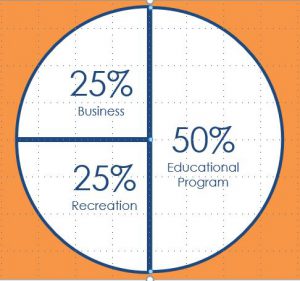 Dysfunction #1 – Adults Lead the Business Meeting
Dysfunction #1 – Adults Lead the Business Meeting
There’s no way around it; 4-H Clubs have business that needs to be dealt with including roll call, secretary and treasurer reports, committee reports, old and new business and announcements. It’s tempting for club leaders to take over and do this part of the meeting, but our youth learn nothing from this! Some of the most useful skills youth develop come from getting ready for the actual meeting and leading their peers in an organized setting, and as an adult, it’s really cool to see youth get things done efficiently. It’s also important to remember that business doesn’t have to be conducted at every 4-H Club meeting.
Dysfunction #2 – Skimping on the Educational Program
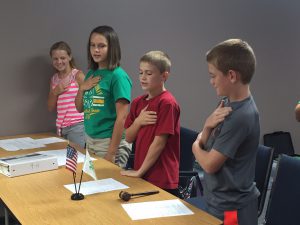
For clubs with younger youth, you can have them lead the pledges.
I’ve seen 4-H Club meetings that were literally 15 minutes long and consisted of only running through a business meeting. It made me cringe, and I know that 4-H parents were thinking the same thing as me… “Did I really leave my house for this?” “I could be sitting at my house in my PJ’s.” “I have three loads of laundry I should be folding.” “Is this all? It took me more time to drive here!” The educational program is the most important part of our 4-H Club meetings! After all, 4-H is in the business of providing high-quality educational experiences for its members, and those experiences can be pretty easy to pull together. Here are a few examples:
- 4-H Club members share what they’re doing with their projects.
- Invite a guest speaker.
- Take a short field trip.
- Show a video.
- Practice for judging contests or do a skill-a-thon.
- Create a fair project.
- Work on a community service project.
Dysfunction #3 – Forgetting the Fun
My co-worker, John Lilly, has a tag line on his email signature – Jefferson County 4-H is the place where there’s fun in learning and learning in fun! I firmly believe that the club that plays together stays together. Why? Because kids are going to want to come back, volunteers are going to stay engaged and most importantly, the parents will bring their kids back. Recreation helps kids make new friends and learn important social skills. Whether it’s through songs, ice-breakers, games, team-building activities or food, don’t forget to inject fun into 4-H meetings.
As a club member, leader or parent, you can help your 4-H Club avoid these three dysfunctions. Good 4-H Club meetings help youth make new friends, develop social skills, increase confidence and leadership and make decisions. To learn more about 4-H Club meetings, visit the florida4h.org and explore our Volunteer Training Series. The information here is great for club leaders but also for youth leaders and parents.
by Heather Kent | Apr 13, 2015
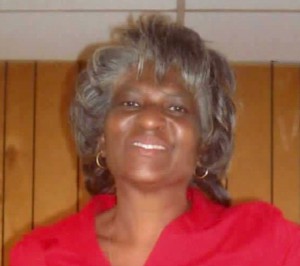
Mrs. Ruth Ann Scurry has been a volunteer for the Jefferson County Hickory Hill 4-H Club for 20 years.
What keeps a volunteer motivated to serve for more than 20 years? If you ask Mrs. Ruth Ann Scurry, a Jefferson County 4-H club leader, she will tell you it’s about making a difference in a young person’s life! Mrs. Scurry raised three sons who were active 4-H members. Her son Kenya even competed at the state level with his demonstration on small engines. Her sons benefited so much from the 4-H program that when her youngest son graduated, she decided to start a 4-H club at her local church called the Hickory Hill 4-H Club. Twenty years later, she still leads this club which focuses on healthy living programs, as well as sewing, gardening, fishing, and consumer choices.
When asked what advice Mrs. Scurry has for club leaders, she shared, “you have to remember to keep the lessons you teach practical and hands on. When teaching nutrition, I show them what a portion size is and remind them to each like a king (breakfast), queen (lunch), and pauper (dinner). If you use examples and language they understand, they will remember. You also have to keep it fun. I make sure to plan a fun treat every now and then to keep the kids motivated and surprised and it works every time. They never want to miss a meeting!”
When asked what is most challenging about being a volunteer today, Mrs. Scurry says, “Many young people today live with only one parent, grandparent, or other relative. These families need help raising their children. 4-H encourages them to make good choices and helps them feel like they belong to an extended family- a 4-H family. 4-H helps them learn how to follow rules and to respect others. Being a good role model is important too. It’s so true that ‘it takes a village to raise a child.’”
Mrs. Scurry has helped build a “4-H village” of caring adult volunteers for her club. She offers simple yet sage advice on how to do this: “Get everyone involved.” She involves everyone from 5-years olds to 83 years old as members and volunteers in her club. She empowers them to make a difference in the lives of 4-H youth by finding out what their strength is, and then asking them to share that strength with the club through an activity, field trip, demonstration, or project.
Mrs. Scurry has not limited her service to just her club. She has also volunteered as a chaperone for 4-H Camp Cherry Lake, the North Florida Fair, and even spearheaded a volunteer appreciation luncheon for local volunteers and community leaders.
Mr. John Lilly, the Jefferson County Extension Director stated, “All of Ms. Scurry’s hard work and dedication affects the entire Jefferson County 4-H Program in a positive way. We are fortunate to have such a loyal and faithful volunteer leader.”
In honor of National Volunteer Appreciation Week, 4-H in the Panhandle is sharing stories of inspirational 4-H volunteers every day this week. if you find Mrs. Scurry’s story inspiring, consider becoming a volunteer yourself! Nearly 3,000 volunteers in the Florida panhandle are making a difference in the lives of more than 28,000 youth. In 4-H, you can leverage your experience and skills to help a young person find their own passions and interests. 4-H needs volunteers like you to inspire the next generation. To learn how to become a 4-H volunteer, contact your local Extension Office or visit http://florida4h.org/volunteers.
Your opinion matters to us! Please take this short survey to help make our blog better. https://ufl.qualtrics.com/SE/?SID=SV_3gtLKjqia3F75QN
by Heather Kent | Feb 20, 2015
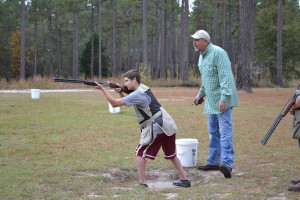
Gary Clark, Sure Shots 4-H Club Leader
In Washington County, the name Gary Clark is synonymous with the 4-H Shooting Sports program. Gary decided to start a club because he wanted to do something that would benefit the next generation of hunters, conservationists, and shooting sports enthusiasts. When asked what he most enjoys about being a 4-H volunteer, he replied “It is a way to give back to a community that has always supported me.’
Gary takes his role as a mentor and role model very seriously. “There are young people watching and listening to your every word, not so much for guidance and inspiration, but to see if you are walking the talk. Working with young people today is not so much about passing along knowledge and teaching life skills as it is about making investments in their lives. Showing the same care and concern for every youth you are working with, no matter what skill level or potential, is critical to that young person viewing themselves as successful.” Relationships with caring adult volunteers is one of the Essential Elements of Positive Youth Development that 4-H is built upon.
I believe that we all have not only an opportunity, but an obligation to help to make our communities a better place to live. I think back on the people who gave their time and resources to coach and mentor me when I was young and I am thankful for the generosity. No amount of time spent investing in the lives our youth is ever wasted!
Seeing kids succeed is what keeps Gary motivated to continue his volunteer service. “Our teams have been extremely successful, but most of that success is measured on the personal level. When you see a student achieve a new personal best or overcome an obstacle that has held them back and you see that little light go off inside their brains, you can’t help but be inspired and so proud of their achievements.” Gary also finds motivation when his 4-H Alumni return to the program as volunteers. “Two former students are also now certified coaches in the program and help out on a regular basis. Seth Pemberton is one of those youth. Seth shares, “Gary has positively impacted my life through 4-H shooting sports by making me strive for excellence, work hard, and give my best.”
Gary shares what inspires him most about being a volunteer is working with youth who would otherwise not have the opportunity to be part of a team. “Unlike so many other sports, shooting is a pretty level playing field- it isn’t only for the most athletic, the smartest, the most popular or the kid that can afford the best equipment. Every member comes into the program with an equal opportunity for success. It is all based on their commitment, focus, and [goals they set for themselves].”
Gary is very modest about his impact his club has on youth, but Julie Dillard, the Washington County Extension Director says, “Gary’s dedication to his community and his 4-H’ers is inspiring and has been the key to the success of Sure Shots 4-H Club. He encourages, praises, corrects and motivates each individual to be his or her best.”
When asked what he feels youth get out of the 4-H Shooting Sports program, he says “They learn about respect for others, commitment, teamwork, goal setting, cooperation and even how to handle disappointment [sportsmanship]. All of these traits come from being part of a program like 4-H. I do not know of any other organization that offers so many different ways for youth to be involved in their community in a structured, safe and nurturing environment that is built on the values and principles that we all hold so dear. I also believe that these skills will follow them throughout their adult lives as well.” Gary’s experience with 4-H is backed by research. The Tufts Study of Positive Youth Development found that compared to other youth, 4-H members are:
- Four times more likely to contribute to their communities
- Two times more likely to be civically active
- Two times more likely to participate in science, engineering, and technology programs during out of school time; and
- Two times more likely to make healthier choices.
Would you consider making the investment of a lifetime by becoming a 4-H volunteer? 4-H offers a variety of volunteer roles based on your interests and schedule. To find out more about being a volunteer, contact your local Extension Office or visit http://florida4h.org.













